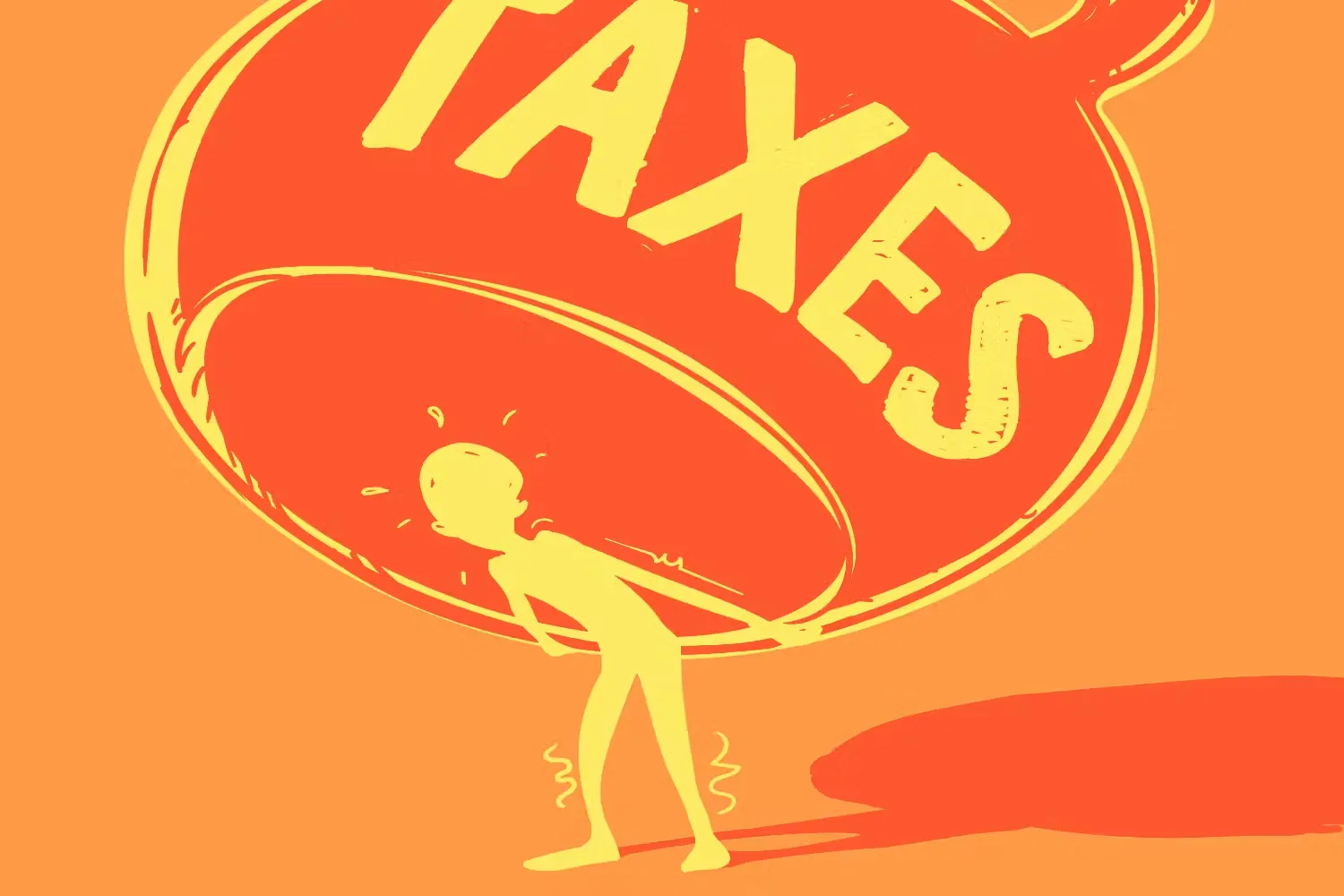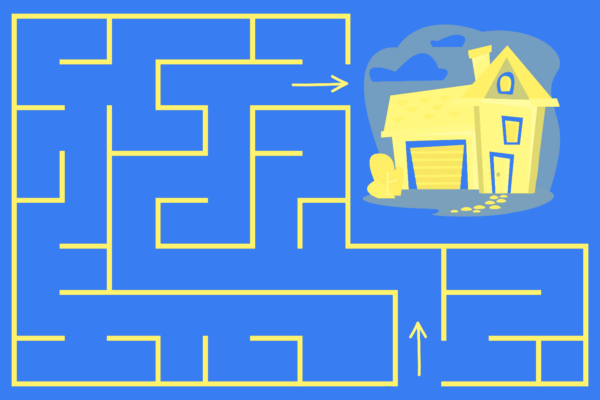
Why are Property Taxes So High in Texas?

Whether you’re a current or future homeowner, the topic of property taxes might be looming large in your mind. These annual taxes are an unavoidable part of homeownership, but it’s one that people often forget to budget enough for— especially in years where there’s an increase. If you live in Texas, and especially in a hot market like Austin, you may have been feeling the pinch of an increase every year.
Looking for a basic understanding of property taxes in Texas and what they mean for you, your neighborhood, your retirement, and your heirs? We teamed up with Terry Council, Director of Retail Mortgage Production at Amplify to give you the answers to these questions and more.
What are property taxes?
Property taxes are taxes levied by the government on real estate property. In other words, if you own property in Texas, you’re paying taxes on it each year.
Property taxes are the most popular type of ad valorem tax, which means that the taxes are based on the assessed value of the property. So the more your house is worth, the more you’ll pay in taxes.
Meet our team and get started.
Our local, award-winning lending team is ready to help you begin today.
How do property taxes work in Texas?
There are three main components to the Texas property tax system:
- Local taxing units: Though you’ll get one property tax bill, your money is divided up among several local taxing units like city, county, schools, and special districts. These units adopt a budget each year and develop a tax rate based on the money that they need to generate.
- The appraisal district: The appraisal district, led by the chief appraiser, sets the values of properties every year and operates the appraisal office.
- The appraisal review board: This committee hears taxpayer protests and resolves disputes between the appraisal district and taxpayers.
Council explained the timeline this way: “Each year, the appraisal district estimates what your property is worth. The value determined on January 1st will be what your tax bill is based upon come October. If you disagree with your appraisal, you can protest it with the appraisal review board starting around mid-May.”
Where do property taxes go?
Property taxes are levied by local taxing units. The money generated from them is how local governments pay for public goods and services that we use every day. In this state, property taxes provide more tax dollars for these local services than any other source. The money goes to pay for city streets, public schools, libraries, county roads, fire protection, and more.
As we mentioned, your tax dollars will be split up among several entities. Council gave a specific example, “Let’s say your home is located in Leander. Your particular property is located in the portion of Leander covered by Travis County, so your property taxes will go to several entities: the city of Leander, Leander ISD, Travis County, Travis County Healthcare District, and Austin Community College. Depending on your neighborhood, you may also pay additional MUD taxes as well.”
Your tax dollars go to funding each of these entities’ yearly budgets.
Why are property taxes so high in Texas?
If you’ve ever lived in another state, you may be wondering why property taxes are so high in Texas. It’s not just your imagination— Texas has the sixth-highest property tax rate in the nation.
There are several reasons why you’re paying more property taxes here compared to other parts of the country:
- Texas has no state income tax: Local governments in Texas have to pay for things somehow, and without income tax revenue to foot the bill, property taxes are used instead.
- Entities like Texas public schools get most of their funding from property taxes: In the state of Texas, property taxes make up the majority of public school funding. Unless the state reworks how schools get their funding, property taxes are likely to remain higher than average.
- Property values are on the rise: While property values don’t affect the income tax rate, they do affect the amount that you pay. Even if your tax rate stays the same, if your house’s value goes up, so does your tax bill. In 2021 and 2022, many cities in Texas saw property values skyrocket— and their taxes.
There are exemptions that homeowners can take advantage of to reduce their tax bill, thanks to recent legislation.
Recent Property Tax Legislation in Texas
Though the State of Texas doesn’t levy its own property tax, it can pass legislation that controls things like exemptions and rate of increase.
Many homeowners get the opportunity to reduce their tax burden through the homestead exemption. Homeowners can apply for this exemption on their principal residence only— investment or rental properties are not eligible. It works by removing part of your home’s value from taxation, therefore lowering your taxes.
Another Texas law prevents property appraisals from increasing more than 10% each year. This helps protect homeowners from outrageous tax bills due to skyrocketing home values.
Most recently, there was a vote in Texas to offer further relief from high property taxes.
- Proposition 1 aims to cut school district property taxes for homeowners who are 65 and older or disabled
- Proposition 2 raises the homestead exemption for school property taxes from $25,000 to $40,000
Both measures passed. Proposition 1 is set to go into effect on Jan. 1, 2023. Proposition 2 went into effect immediately, applying retroactively to Jan. 1, 2022.
Implications of Property Taxes for Homeowners
If you’re house-hunting in Texas, it’s important to research your new neighborhood’s property tax rate before you purchase a home. Council had this advice for new homeowners: “Plan ahead now for future increases in property value and a higher property tax bill. Do your research on how much taxes can increase per year, and factor in a few years’ worth of increases to make sure you can afford a bigger future payment.”
You can also try looking for homes in areas with a lower tax rate. “Buyers can—and should—add the local property tax rate into their criteria for a new home. By looking for houses in neighborhoods or areas that have historically lower tax rates, you may save yourself significant money in the future,” added Council.
Implications of Property Taxes for Retirees
Property taxes aren’t just something that you should think about when you first purchase a home. If you’re planning on staying in Texas and owning a home, property taxes have many implications for the years ahead.
- When you retire, will you be able to afford larger property taxes?
- If you downsize to a smaller home, how will your property taxes be affected? You will lose your homestead exemption for your current property, so your new taxes may be significantly higher.
- If you leave your home to your children or other heirs, are they prepared to pay property taxes?
Some of these questions are easier to answer than others. If you have questions about retirement or estate planning, a financial advisor may be able to help.
The Bottom Line
Owning a home comes with many responsibilities— one of which is property taxes. In Texas, your property tax dollars keep your local cities, towns, and counties up and running. Even though they might be something you only think about when you get your appraisal or pay your bill, it’s important to think about how your taxes may affect you and your family in the future.
Ready to get prequalified?
Apply today and start your journey toward your new home.




